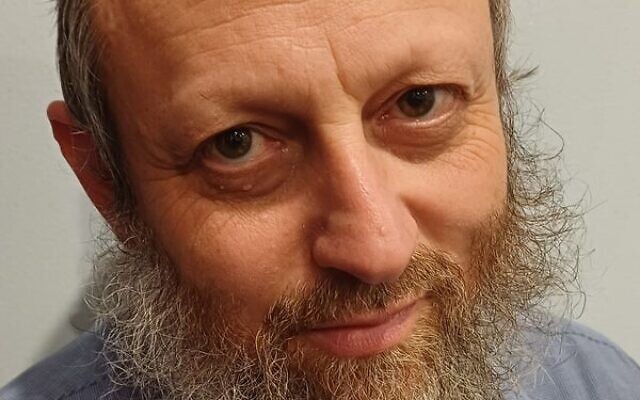Who are the Indigenous People of Palestine?
Over the following centuries, small communities of Jews always remained in the land of Israel, and those in exile prayed every day to return. Sovereignty was never ceded.
In a recent episode of ABC’s Q&A (23/10) panellist Larissa Baldwin-Roberts, described as a “proud Widjabul Wia-bal woman from the Bundjalung Nations”, appeared sporting a scarf displaying Palestinian symbols, such as a map of the whole of Israel, from the river to the sea.
In her opening remarks addressing the horrific massacres in Israel on October 7, she called for “a peaceful resolution to the situation” and then stated:
“For First Nations people, there is an incredible solidarity that exists here. And we are talking about securing a free future for Palestine, when you talk about the freedom to continue your language, your culture, and not just to survive, but to thrive as people.”
She didn’t express solidarity with over 1200 Israeli victims, butchered or kidnapped, of Hamas’s vicious massacres or their grieving relatives and friends, but with the Palestinians. Considering her claimed feelings of First Nation solidarity with them, she obviously sees the Palestinians as a “First Nations people”. In this scenario, the Israelis would have to be playing the role of the evil white colonialists.
But who really are the indigenous people of Palestine? An honest look at the history of the land will show that Larissa has got her character roles reversed.
Let’s go on a brief historical tour. The Jewish people, or Israelites, settled in the land of Israel, also known as Judea, 40 years after the Exodus from Egypt – around 1270 BCE. With the exception of a small blip of 70 years known as the Babylonian exile, the Jewish people lived in and ruled the land continuously for the next 1340 years. This included the periods of the biblical Prophets, Kings David and Solomon and Herod’s re-building of the second Temple in Jerusalem.
The good times ran out in the first century CE when the Romans occupied Judea and destroyed the Temple. Jewish sovereignty finally flickered out some 65 years later, in 135 CE, when the Romans put down the Bar Kochba rebellion. Not only did they murder and exile hundreds of thousands of Jews, they did something else which would have greater consequences many centuries later: They re-named Judea “Palestine”.
This moniker was taken from the Philistines, one of the extinct peoples of early biblical times who ironically lived in the coastal Gaza region and were often a source of irritation to their neighbouring Israelites.
Over the following centuries, small communities of Jews always remained in the land of Israel, and those in exile prayed every day to return. Sovereignty was never ceded.
Many empires conquered the land only to be re-conquered by the next invaders. In the seventh century, Muslim invaders from Arabia conquered Palestine, as part of their conquest of the Middle East and beyond, bringing Islam and Arabic culture to Palestine. As stated in the first article of the PLO’s National Charter, those who today identify as “Palestinians” are an integral part of the Arab people. Racially, culturally and linguistically, they are not dissimilar to other Middle Eastern clans who today identify as Jordanian, Syrian, Lebanese, Saudi and Egyptian.
In the late 19th century, when Palestine was coming to the end of 400 years of Turkish Ottoman rule, a movement arose among the Jewish people, known as Zionism, with the aim of re-establishing a Jewish National Home in Palestine. Its aim was never to replace its contemporary inhabitants, but to re-establish a Jewish homeland through immigration and legal purchase of land for farming and building communities. In doing this, they were following the precedent of their forefather Abraham, as told in the book of Genesis. Although G-d had promised the land to him and his descendants, when he wanted the cave of Machpelah in Hebron as a burial place for his wife Sarah, he insisted on paying for it in hard cash.
Although the Zionists strove for peaceful coexistence with Palestine’s Arab inhabitants, it is no secret that many Palestinian Arabs wanted Palestine to be predominantly Arab, and reacted with violence.
But that didn’t stop some in neighbouring Arab countries from seeing the economic opportunities Jewish development brought. Many immigrated to Palestine during the post-World War I British Mandate period to find work, swelling the Palestinian Arab population.
Although undoubtedly some of today’s Palestinian Arabs belong to families which have lived in the land for several centuries, many are descended from more recent arrivals, including these relatively new 20th century immigrants. In fact, many of today’s Palestinian surnames reveal their families’ country of origin. For example, one of the most senior Hamas leaders in Gaza is known as Mohammed Deif. But Deif is a nom de guerre. His original family name is one he shares with many Palestinian Arabs – al-Masri, meaning “the Egyptian”.
Which brings us to the claims of today’s Palestinian leaders. Over the past few decades, leaders of the PLO and Palestinian Authority such as the late Yasser Arafat, and today Mahmoud Abbas, have repeatedly made outlandish claims at international forums – including a speech given at the UN on May 15, 2023 – that the Palestinians are descended from the ancient Canaanites or Jebusites. Like the Philistines, these are extinct races from biblical times who have not been heard from for well over 2000 years, and certainly have no connections to today’s Arabs or any other national identity.
One can empathise with the desire of Palestinian Arabs to seek self-rule. But any discussion needs to be honest and recognise who the indigenous land holders are. It is a people who have maintained a continual connection to the land of Israel for over 3000 years – historically, nationally and spiritually.
Mordechai Smith is a member of the Sydney Jewish community who has long held an interest in history and current political events.


comments